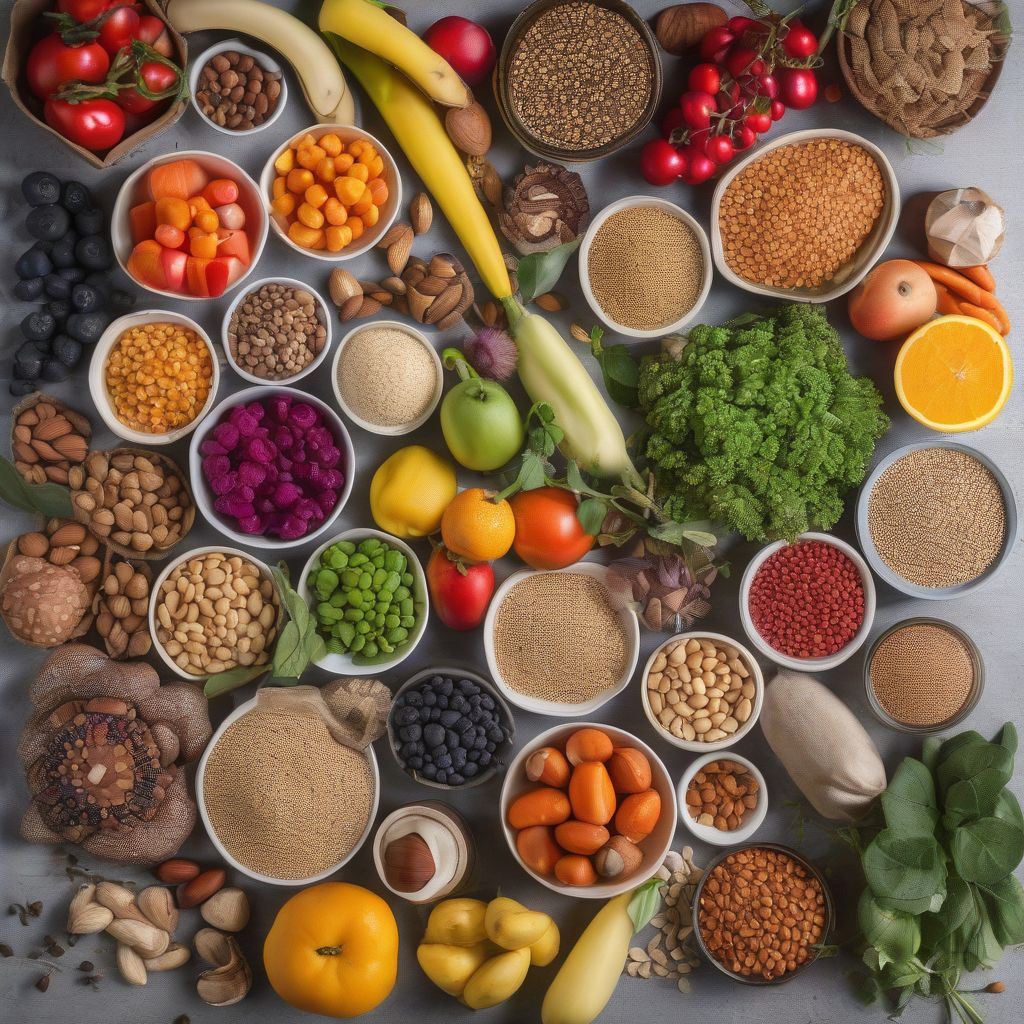Have you ever dreamt of vibrant health, boundless energy, and a clear conscience knowing your food choices are kind to both your body and the planet? Adopting a plant-based diet can be a powerful step towards achieving these aspirations. However, like any significant lifestyle change, it requires careful planning to ensure you’re getting all the nutrients your body needs.
While plant-based diets offer a wealth of benefits from reducing heart disease risk to supporting a healthy weight, they can sometimes lack certain nutrients if not approached thoughtfully. This article delves into the most common nutritional deficiencies encountered on plant-based diets and, more importantly, provides practical, actionable steps to ensure you thrive while enjoying the delicious world of plant-based eating.
Understanding Common Deficiencies: Your Plant-Based Nutrition Roadmap
Even the most well-intentioned plant-based eaters can fall short on certain nutrients. Here’s a closer look at some of the usual suspects:
1. Vitamin B12: The Energy and Nerve Function Catalyst
Vitamin B12 plays a crucial role in energy production, DNA synthesis, and maintaining a healthy nervous system. Unfortunately, it’s primarily found in animal products, making it a common concern for plant-based eaters.
How to Avoid B12 Deficiency:
- Fortified Foods: Opt for fortified plant milks, nutritional yeast, and breakfast cereals.
- Supplements: Consider a reliable vitamin B12 supplement, especially if you’re new to a plant-based diet.
- Nutritional Yeast: This cheesy-flavored powerhouse is a surprisingly good source of B12. Sprinkle it on popcorn, pasta, or soups for a flavorful boost.
2. Iron: The Oxygen Carrier
Iron is essential for transporting oxygen throughout your body. While it’s abundant in plant foods, our bodies absorb it less efficiently from plant sources than animal sources.
How to Enhance Iron Absorption:
- Vitamin C Synergy: Pair iron-rich foods like lentils, spinach, and tofu with vitamin C-rich foods like bell peppers, strawberries, or citrus fruits to boost absorption.
- Cooking with Cast Iron: Cooking acidic foods like tomato sauce in cast iron cookware can increase iron content.
- Soaking and Sprouting: Soaking beans, lentils, and grains before cooking can improve iron absorption.
3. Omega-3 Fatty Acids: The Brain and Heart Heroes
Omega-3 fatty acids are crucial for brain health, heart health, and reducing inflammation. While most plant-based diets provide ample ALA (an omega-3 precursor), converting it to the active forms EPA and DHA can be inefficient.
Boosting Your Omega-3 Intake:
- Flaxseeds, Chia Seeds, Hemp Seeds: These nutritional powerhouses are excellent sources of ALA omega-3s. Grind them to increase absorption or enjoy them whole.
- Algae Oil: Derived from algae, this supplement is a direct source of EPA and DHA, making it a great option for plant-based eaters.
4. Calcium: The Bone Builder
Calcium is vital for strong bones and teeth, as well as playing a role in muscle function and nerve transmission.
Ensuring Adequate Calcium Intake:
- Calcium-Rich Plants: Embrace calcium-rich leafy greens like kale and collard greens, tofu (especially calcium-set varieties), and fortified plant milks.
- Sunlight and Vitamin D: Adequate vitamin D is crucial for calcium absorption. Enjoy safe sun exposure or consider a vitamin D supplement, especially during winter months.
5. Iodine: The Thyroid Supporter
Iodine is essential for thyroid hormone production, which regulates metabolism, growth, and development.
Optimizing Iodine Levels:
- Iodized Salt: Opt for iodized salt over non-iodized varieties.
- Seaweed: Seaweed like nori, kelp, and dulse can be good sources of iodine, but consume them in moderation as levels can vary greatly.
 A Colorful Variety of Plant-Based Foods
A Colorful Variety of Plant-Based Foods
Thriving on a Plant-Based Diet: Tips for Success
- Variety is Key: Embrace a rainbow of colorful fruits, vegetables, legumes, whole grains, nuts, and seeds to ensure a diverse nutrient intake.
- Listen to Your Body: Pay attention to any signs of nutrient deficiencies like fatigue, pale skin, hair loss, or digestive issues. Consult with a healthcare professional or registered dietitian for personalized guidance.
- Plan Your Meals: Meal planning can help ensure you’re including a variety of nutrient-rich foods in your diet. Consider using a meal planning app or consulting with a plant-based nutritionist.
- Read Food Labels: Be mindful of the sodium, sugar, and processed ingredient content in plant-based processed foods.
Embracing the Plant-Based Journey
Transitioning to a plant-based lifestyle can be an empowering experience, leading to improved health, increased vitality, and a deeper connection to your food choices. By understanding the potential nutritional considerations and proactively incorporating the strategies outlined above, you can confidently embrace a vibrant and fulfilling plant-based journey.
Remember, knowledge is power. Equip yourself with the tools to make informed choices and enjoy the countless benefits of a delicious, nourishing, and planet-friendly plant-based way of life.
Do you have any questions or experiences to share about your own plant-based journey? We’d love to hear from you in the comments below! Share this article with someone who might find it helpful, and let’s continue to support each other in embracing healthier, more sustainable lifestyles.
[amazon bestseller=”plant-based cookbook”]
